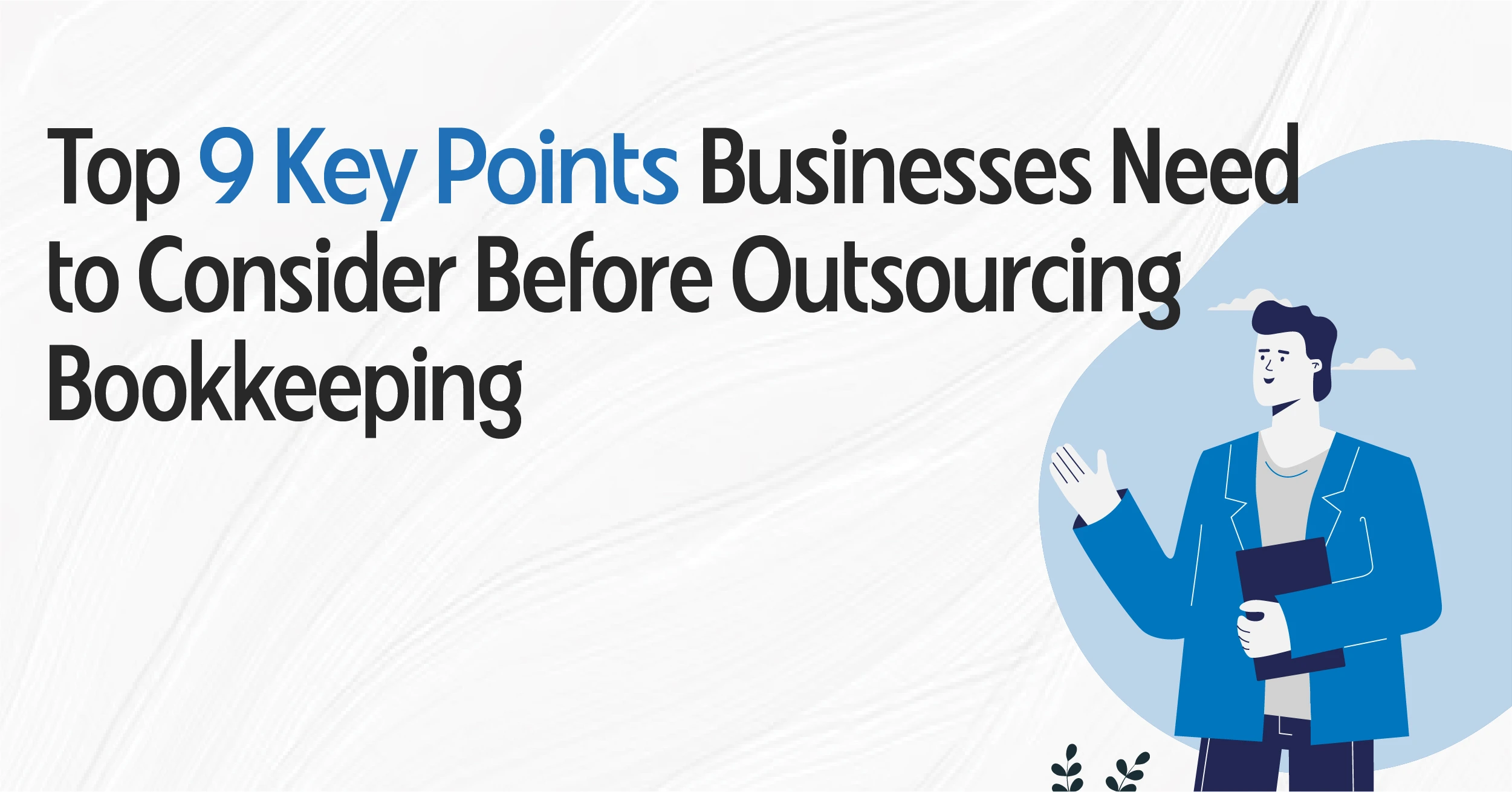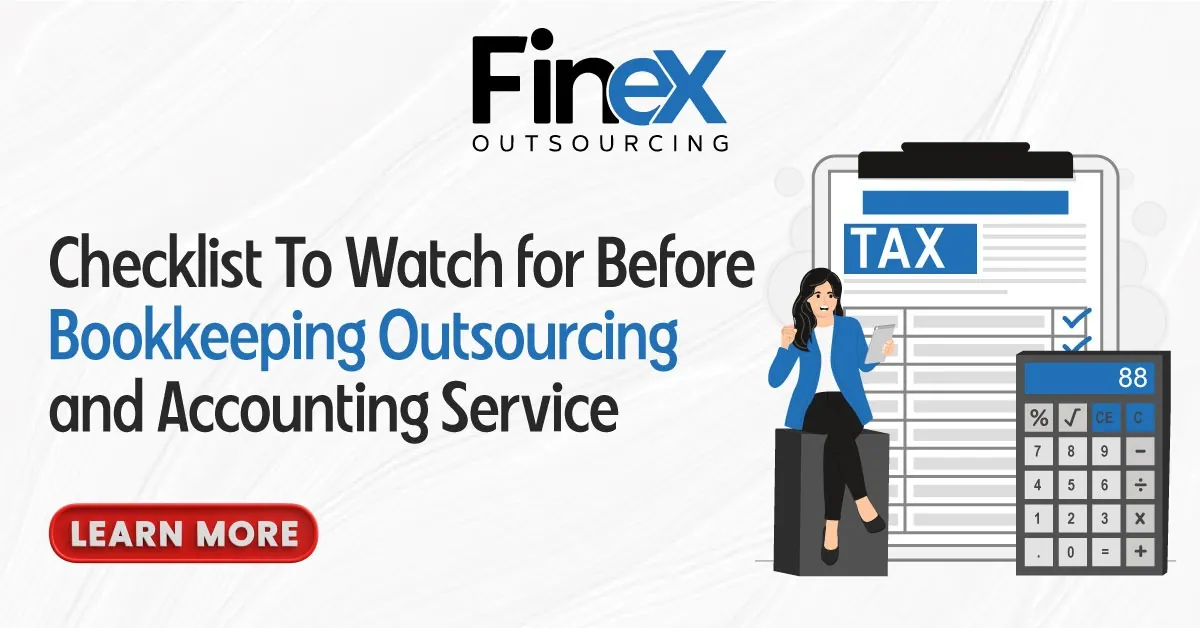Bookkeeping and Accounting play a vital role in keeping a business running smoothly, driving profitability, and ensuring long-term success. Whether a company is just starting out or is already well-established, business owners and internal teams may lack the time or expertise to manage all aspects of the company’s financial operations. Fortunately, a wide range of Bookkeeping outsourcing and accounting services are available to support companies in handling payroll, financial records, and other critical financial tasks.
By outsourcing bookkeeping services, businesses gain access to professional support for time-consuming and complex financial processes without the need to hire additional full-time staff or increase the compensation of the existing team. Outsourcing also enhances business efficiency and credibility, allowing the in-house team to focus on their core responsibilities while financial experts manage the financial challenges remotely.
Bookkeeping Outsourcing and Accounting – A Brief Introduction
Being an entrepreneur often involves overseeing every aspect of a business. However, juggling all these responsibilities while ensuring business goals are met can become overwhelming. Yet, there is one essential area in every company that, while not requiring creativity, demands constant attention – accounting and bookkeeping.
While many businesses use outsourcing to streamline their IT and HR operations, this approach offers even more benefits in other areas. Financial management and record-keeping are tasks where a specialized bookkeeping and accounting firm can provide significant support. Outsourcing allows businesses to partner with experts who handle everything from daily transactions, accounts payable and receivable, payroll, invoicing, and tax calculations. Some larger firms also offer consulting services.
In some cases, outsourcing is referred to as subcontracting. In the realm of financial management, outsourcing is often known as Finance and Accounting Outsourcing, where an external company manages part or all of a business’s financial functions.

Key Factors Driving Businesses to Bookkeeping Outsourcing Services
Every business operates with a unique model, but the common goal is to thrive in today’s fast-paced economy. Companies are usually aware of when it’s the right time to outsource their accounting and bookkeeping to external firms. However, several common factors often drive businesses to seek outsourcing, including the following:

Budgetary Challenges:
Unstable or reduced cash flow often forces companies to make tough decisions to save costs. Since accounting and bookkeeping are not core operations for many businesses, outsourcing these tasks is a cost-effective solution. This approach reduces expenses and frees up resources for more critical activities, enhancing credibility and client retention.
Investor Capital:
To attract investors or when presenting a business for potential investment, it’s crucial to provide detailed and accurate financial reports. To ensure proper documentation and financial insights, companies frequently outsource financial management services.
Bank Financing:
When startups or growing businesses seek bank loans to scale operations, banks require comprehensive financial records. This is another reason companies turn to outsourcing, as external firms can provide the necessary documentation.
Technological Advancements:
As communication and networking technologies improve, remote work becomes easier and more efficient, opening new opportunities for businesses. Simultaneously, accounting technology has evolved, and keeping up with these advancements can be costly. Therefore, businesses often choose to outsource their financial services to access the latest tools without the heavy investment.
Rapid Growth:
As businesses grow and experience increased sales, cash flow, and revenue, more time and resources are needed to manage operations efficiently. Outsourcing helps streamline these processes during periods of significant growth.
Evolving Role of Accounting:
Chief Financial Officers (CFOs) are under pressure to provide valuable insights that help business owners make informed decisions, while also ensuring compliance with accounting regulations. Outsourced financial services can assist businesses in meeting these demands effectively.
Top 9 Key Points Businesses Need to Consider Before Outsourcing Bookkeeping
When creating a checklist for bookkeeping outsourcing, businesses must consider several factors to ensure they make the right decision. While the process can be complex, it holds the potential to streamline financial operations and drive business efficiency. Here’s a checklist that outlines key points to consider before selecting an outsourced bookkeeping service:

Experience:
It’s essential to thoroughly research the outsourcing firm’s experience. This helps businesses gauge whether the firm is capable of handling their bookkeeping needs, especially if the company plans to scale its operations in the future.
Businesses should identify the specific services they need, such as tax filing, invoicing, and payroll. Since bookkeeping outsourcing often involves a phased approach, it’s important to partner with firms that offer flexible solutions and can grow with your needs.
Trust:
Relying on word-of-mouth recommendations and traditional methods of determining credibility remains crucial. Speak with the firm’s existing clients or partners to assess their competence, reliability, and integrity.
Time Efficiency:
One of the primary reasons for outsourcing is to save time. Before choosing a bookkeeping outsourcing provider, verify their ability to deliver timely results. Fast, efficient service is key to ensuring your business runs smoothly.
Cost:
Cost-effectiveness is another vital factor. The outsourcing company should offer competitive pricing that is lower than the cost of managing an in-house team. This reduction in costs should help increase overall business revenue.
Resources:
Ensure the outsourcing firm has sufficient resources to meet your needs. With more resources at their disposal, the vendor can handle operations faster, allowing your business to focus on critical tasks and save time.
Quality of Service:
Evaluate the quality of services the firm has delivered in past projects. A company with a proven track record of success and skilled professionals is likely to provide better results. Firms experienced in handling various business operations are often the best choice.
Innovation:
Outsourcing firms should demonstrate innovation by offering creative solutions to reduce costs and increase revenue. A passionate team with the ability to think outside the box can play a crucial role in driving operational efficiency.
Infrastructure and Tech Capabilities:
For startups and small businesses, investing in advanced technology can be expensive. By outsourcing to a firm with cutting-edge bookkeeping tools, businesses can stay competitive without making costly investments in technology.
Conclusion:
Businesses must carefully evaluate potential bookkeeping outsourcing partners to ensure they meet these criteria. By outsourcing to the right firm, like Finex Outsourcing, businesses can streamline their financial operations, reduce costs, and focus on growth.


